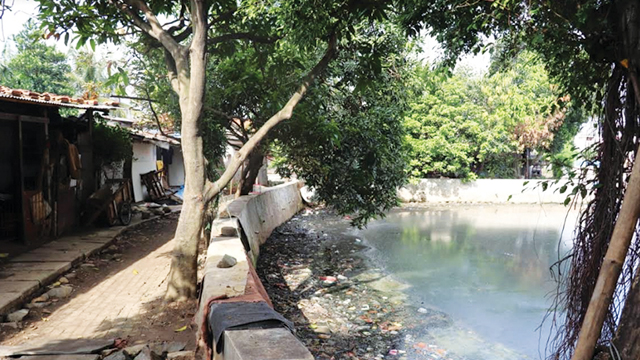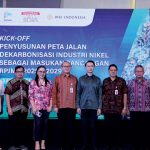Jakarta (Greeners) – Ministry of Environment and Forestry is planning to rehabilitate the heavily polluted Pladen Lake of Depok, said a senior official in Jakarta on Tuesday (12/03/2019).
Karliansyah, Director General for Pollution and Environmental Damage Control at Ministry of Environment and Forestry, said that the plan is a follow up of the minister’s last visit to Depok in February, which she received reports on the devastated condition of the 1.27 hectares lake with black water, bad odour and sedimentation.
“When [we] got there for the first, the smell so awful it could make people faint because Pladen Lake is turned into domestic waste landfills of residents living in Beji and Pancoran Mas, which comprise of more less 6,000 people,” he said. “Other fact is that the actual cover of Pladen Lake is seven hectares, however, it’s only 1.27 hectares as residents developing in Pladen Lake and ironically, those houses are legally certified.”
He said at least 1,500 families live in the banks of Pladen Lake.
READ ALSO: Minister of Environment and Forestry Calls for Reducing Household Waste
Furthermore, he said that the rehabilitation of Pladen Lake will cover four principles, — to prevent waste coming to the lake, to restore the lake’s carrying capacity through dredging, to improve water quality by increasing oxygen level to speed up natural clean-up process, and transform the lake as public space to strengthen community engagement–.
READ ALSO: Citarum River Clean Up Focusing on Waste Water Installation
Local report allegedly stating that grey water, one of waste water, is coming from residents in RW14, RW03, and RW02 of Beji subdistrict with a total of 1,500 families and unknown source which runs through from Pancoran Mas.
Karlianysah said that Pladen Lake’s carrying capacity is 1,148 kilograms of Biochemical Oxygen Demand (BOD) per year, however, from the field checking, it reaches up to 11,348 kilograms BOD/year. Consequently, they need to reduce 89.97 percent of pollution.
Hence, on March, the ministry starts the rehabilitation process by installing nanobubble machine resulting to the increase of dissolve oxygen to 11 mg/L.
Apart from water quality rehabilitation, Ministry of Public Works and People’s Housing, communal wastewater treatment plant, Pladen Lake development for tourism, and institutional capacity building.
“For domestic waste, the plan is to built wastewater treatment plant, four times five square meter for water to be managed before dumped, but we have not found the lands yet. Currently, we will just immediately dredging mud done by local administration.
Reports by Dewi Purningsih



















































